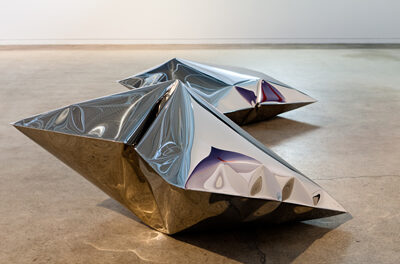There certainly was something for music-lovers of every stripe at Meymandi Concert Hall. In this latest edition of the Classical Series presented by Duke Medicine, Music Director Grant Llewellyn and the NC Symphony wended their way from the baroque to the contemporary. Prominently assisting in the evening’s proceedings were pianist Antonio Pompa-Baldi and trumpeter Paul Randall.
The opener featured perhaps the most “leaned down” version ever of the orchestra. In fact it comprised a mere eight players: flute, clarinet, and pairs of trumpets, bassoons and trombones, precisely the mix that Stravinsky specified for his piece, Octet (1923). Despite the numbers, here was no chamber work. It was a full-throated concert piece, with three movements and all the hallmarks of vintage Stravinsky. The middle movement featured a set of five variations, the first of which recurred throughout the movement. The composer reported that the Octet began with a dream. Knowing of that genesis goes far toward explaining its structure.
The number of players bulked up to some twenty-five with oboes, bassoons and strings for the Orchestral Suite No. 1 in C, by Bach. Llewellyn’s placement of this work between the two modern pieces was instructive. This old standard of the literature received a fine and lively treatment as the players negotiated the Overture and the many dances that constituted its seven movements. Particularly effective was movement VII, “Passepieds I and II,” where the oboes added an agreeable dash of spice to the string stew.
Bringing matters to the present was Arvo Pärt’s 1994 revision of his “Concerto Piccolo after B-A-C-H.” Paul Randall, principal trumpeter for the NCS, was a tireless and virtuoso soloist, a bright spot in an otherwise not too successful work. The orchestration, especially in the Lento, was otherworldly and exciting. But that particular four-note combination seemed no more felicitous here than various other composers have managed, notably Liszt’s attempt for organ.
One critic has praised Antonio Pompa-Baldi as a “pianistic messiah.” Although messiah might actually be a bit above his pay grade, just about any more earthly superlative could well apply to his musicianship. The native of Italy and young veteran performer brought an uncommon level of pianism to Beethoven’s Piano Concerto No. 5 in E-flat. Even his idiosyncratic mannerisms in this “Emperor” concerto bespoke constant fealty to the music, as he seemed to be vicariously playing all the other parts during lulls in his own action. The audience obviously approved as they rewarded him with vigorous and sustained ovations.
The North Carolina Symphony never sounded better. All the magisterial qualities of Beethoven came through during the extended tutti near the beginning. The synchronism between director and soloist seemed impeccable. The work constituted a successful conclusion to a well-balanced evening.











